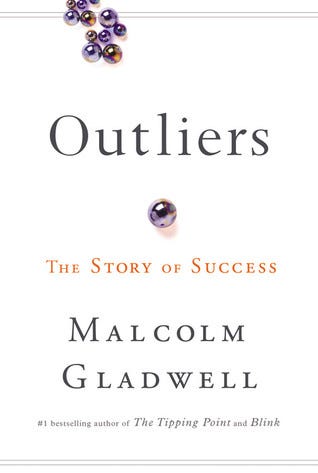Book summary: Outliers book by Malcolm Gladwell
Here are the notes from ‘Outliers’ book by Malcolm Gladwell
The core idea of the book is ‘Success has more to deal with external factors than other factors like hard work and talent’
In hockey, the birth month of players played a crucial role in the success of the players. For instance, 40% of players were born in Jan - March, 30% between Apr-Jun, 20% from Jul - Sep, and 10% between Oct-Dec. This means, simply by getting born in January, you’ll have a competitive advantage over others by practicing with those who are physically strong and has speed difference on how they deal with the ball.
Talent plays a role in someone’s success, but it doesn’t matter much as we think.
To truly be a master in any field, you need to train for 10,000 hours of practice. For Eg: Bill Gates happened to attend the only school that allowed a time-sharing system with their computers. Bill Gates happened to attend that only school. He used this opportunity to his advantage. Everyone had the right age and opportunities to put in their 10,000 hours of practice to become a master of what they’re right now.
In a basketball play, if your height has some x cm and your opponent has x+30 cm, it makes very little difference in the outcome. It’s the other factor outside which could determine what makes you successful. The same applies to intelligence. Your intelligence has very little on the outcome of how successful you can become.
Parenting styles (how you were born and brought up) also have a similar effect on how you approach the world over which you have very little control over.
What kind of problems we work on, how we work, what it takes are all external factors which could decide the probability of our success.
Where you come from matters. Asians are better at math because farming rice has been culturally into them. Unlike farming wheat or corn, farming rice is hard. It takes much control, counting, and precision. Asians are generally trained for this. So, where you’re born matters too (i.e Cultural legacy)
